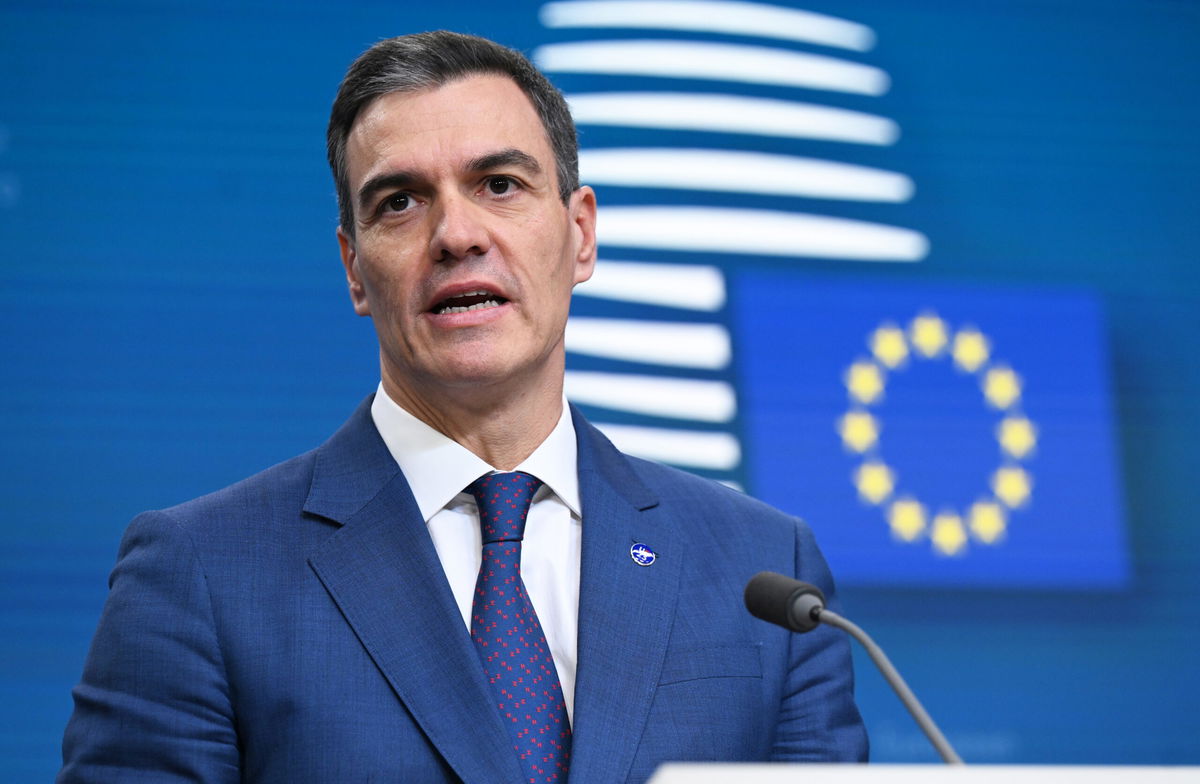Could a country actually be expelled from NATO, as President Trump has suggested? The answer is no. Credit: miss.cabul / Shuttertstock.com
US President Donald Trump spoke with Finnish President Alexander Stubb in the Oval Office on Thursday, October 9, criticizing Madrid’s role in the alliance and declaring that Spain “should be expelled from NATO.”
“They have no excuse not to do it. Frankly, they should probably be kicked out of NATO,” Trump said, referring to member states’ defense spending. “I asked for 5% instead of 2%, which most people thought would never happen, but it was approved almost unanimously,” he added.
But could a country actually be expelled from NATO, as President Trump has suggested?
the answer is no
The North Atlantic Treaty, signed in 1949, does not include a mechanism for expelling member states. What the Article allows is voluntary withdrawal as outlined in Article 13. Any member state can withdraw after one year of notifying the United States, which must then notify other allies. Beyond that, there is no provision that would allow any country, including the United States, to forcibly evict another country.
The Spanish government has so far avoided direct confrontation with the US government. On Friday, government sources simply reaffirmed that Spain is a “full and committed NATO member” and is “achieving its capability objectives in line with the United States.” Officials declined to speculate on whether the United States might step up diplomatic pressure on Madrid to increase military spending, but highlighted Spain’s extensive participation in NATO missions, particularly along the alliance’s eastern flank to counter the Russian threat.
That commitment was reaffirmed earlier this year when NATO Secretary General Mark Rutte and Prime Minister Pedro Sánchez exchanged letters granting Spain “flexibility to determine its own sovereignty path” as long as it meets agreed defense capabilities.
Numbers President Trump dismisses as insufficient
These functional objectives, categorized for security reasons, are reviewed every four years. The current framework is valid until 2029 and focuses on deterrence on the Eastern Front, as well as cyber warfare, hybrid threats and disinformation. Spain believes it can achieve these goals while spending 2% of GDP on defense, but President Trump has dismissed this figure as insufficient.
President Trump has long argued that the United States should not protect allies that “underspend” on defense, often implying that increased spending should be accompanied by the purchase of American weapons. But he has never publicly proposed expelling NATO members, a proposal that calls into question the very foundations of the transatlantic alliance.
cooler relationship
Bilateral relations between Washington and Madrid have cooled since President Donald Trump returned to office in January, having enjoyed a strong period under President Joe Biden. In one of the few official contacts since then, Spain’s Economy Minister Carlos Cuerpo met with U.S. Treasury Secretary Scott Bessent in April. The American side was frank. Bessent urged Spain to increase defense spending within NATO and reiterated his opposition to Spain’s digital services tax and other trade barriers.
“Waste of billions”
Meanwhile, Mr Sanchez rejected the idea of spending 5% of GDP on defense as a “waste of billions”, estimating it would cost workers around 3,000 euros a year in additional taxes. He has promised to keep increasing spending, from 0.9% of gross domestic product (GDP) in 2018 to 1.4% in 2024 and expected to 2% this year, but argued that 5% is “disproportionate and unnecessary.”
Spain’s contribution to NATO operations cannot be ignored. About 800 Spanish troops are deployed along the alliance’s eastern border, including a 350-man Latvian contingent, Bulgarian Eurofighter jets and a Turkish Patriot missile squadron. The Spanish Navy also operates as NATO’s permanent maritime force in the Mediterranean and Black Sea, and Spain has major NATO headquarters in Valencia, Madrid, and Rota, providing important strategic reach in a potential conflict.








